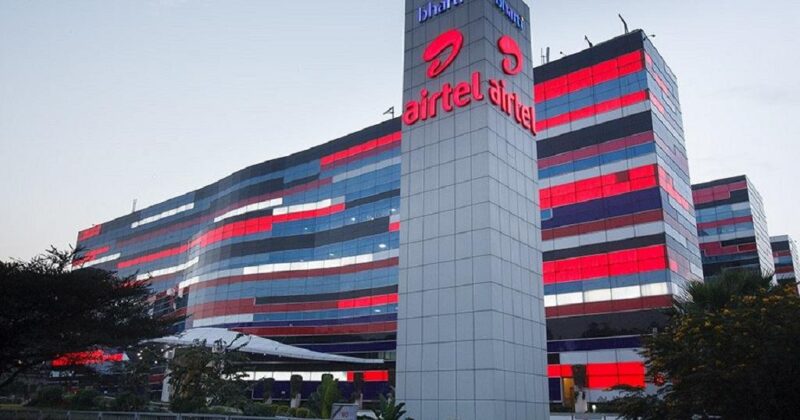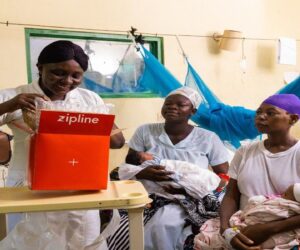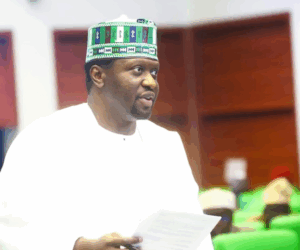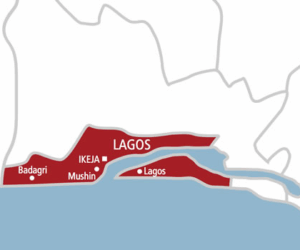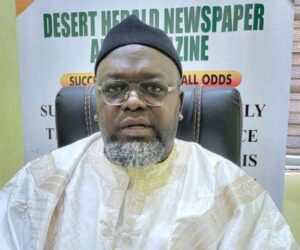Telecom operator Airtel Nigeria has announced plans to build a 38-megawatt hyperscale data centre facility. This comes two months after its rival MTN Nigeria launched the Dabengwa Data and Cloud Centre in Lagos.
Airtel Nigeria’s Chief Technology Officer, Hermanpreet Dhillon, in an interview with Economy Watch on Monday, noted that the facility will address customers’ needs and increase demands for AI and cloud operations. The facility, when built, will be considered Nigeria’s and West Africa’s largest data centre.
“We are also coming up with a huge data centre which will meet the customer requirements and also understand the AI wave and the digital tools which will bring more and more innovation and more and more information for all of us to work on,” he said.
The data centre will be located in Eko Atlantic City, Lagos State. This location has seen the influx of corporate organisations such as MTN Nigeria, Dangote Group, and the First Bank of Nigeria.
Dhillon said that the facility will play a pivotal role in Airtel Nigeria’s investment plans. He added that the move also forms part of its infrastructure development strategy that will witness new fibre rollouts, spectrum acquisition and upgrades to Airtel’s existing 2G, 4G and 5G networks
“I think they play a better role in our investments,” he noted.

Recall that on July 1, MTN Nigeria launched its data centre – Dabengwa Data and Cloud, in Lagos state. The $150m tier-3 facility has a 4.5 megawatt power capacity, with the potential to increase it to 14 megawatts over the next 24 months. The facility was built to serve startups, software engineers, content creators, and everyone operating within the digital space.
When it comes to live, Airtel Nigeria’s planned 38 megawatt data centre will not only be the largest in Nigeria, but also in West Africa.
At a time when data and cloud centres have become a significant resource for tech-related companies, investment in this facility is key to serving customers better. For telecom companies, data centres are vital for hosting servers and managing voice, data, and internet services.
Aside from enabling reliable and secure network operations, the infrastructure provides the necessary networking capabilities required to support 5G networks and cloud services.
Teraco facility, located in South Africa, hosts the largest data centre in Africa, with a 200 megawatt capacity.
Also Read: MTN Nigeria launches $150m Dabengwa Data Centre in Lagos with Abia govt as 1st client.


Airtel Nigeria is investing in a submarine optical cable
In another infrastructural expansion, Airtel Nigeria plans to build a subsea cable landing station in Port Harcourt. While nearly all of Nigeria’s internet traffic flows through Lagos, the company wants to create a second gateway to strengthen Nigeria’s digital backbone and regional connectivity.
“We are coming up with a cable landing station, the second point, which is in Port Harcourt. Right now, the ingress and egress are in Lagos,” Dhillon said.
Airtel Nigeria’s Chief Technology Officer explained that the planned Port Harcourt landing station would support new services such as cloud computing, artificial intelligence and other data-heavy software. It will also promote a strong connectivity from Nigeria to the rest of the world.
However, Dhillon did not disclose the timeline of the project or its size. He, however, affirmed that the infrastructure is part of Airtel Nigeria’s investment plans to serve subscribers better.


Aside from the new fibre investment, Airtel Nigeria is also planning to repair damaged fibre cables.
Between June and July, the telecom operator suffered several fibre cut incidents across multiple sites in Rivers, Anambra, Imo and Zamfara States. Data also revealed that Airtel Nigeria was among the worst hit telecom operators in terms of fibre cuts and telecom infrastructure vandalism.
To address the challenge and restore connectivity, the company said it will partner with Starlink and OneWeb to provide network facilities in places where fibre cables cannot reach.
“We are partnering with Starlink and OneWeb to provide backhaul capacity and connect even the remotest parts of Nigeria,” Dillon added.

